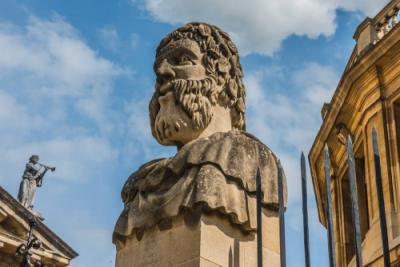
About this course
What kinds of people, values, and relationships does Law assume? What is the Law's vision of the good life? Whose morality counts? This course explores Law and legal doctrine not as a neutral instrument but as a moral architecture.
We will begin with the foundation of Law, personhood, and responsibility, considering natural law, legal positivism, and the justification of state authority. We will proceed to examine the notions of autonomy, Justice, and moral disobedience, investigating whether it can be morally justified to break the law, and how the law can address human dignity, inclusion, and equality. The course concludes by looking at the connections between law and citizenship, evaluating whether law can be both morally grounded and democratically plural.
Join this course for a wide-ranging introduction to the moral life of the law, equipping yourself with skills of critical analysis and nuanced evaluation of vital topics of our time.

Course Convenor: Dr David Edward Campbell
David is an Associate Research Fellow on the ERC funded 'Roots of Responsibility' project which he holds concurrently with a Visiting Researcher position at the Department of Philosophy, UCL. He also holds a stipendiary lectureship in Law at Lady Margaret Hall, Oxford. He has conducted his PhD research at the School of Law, Trinity College Dublin where I was co-convenor of the Irish Jurisprudence Society. I has also been called to the Bar of Ireland. His current research straddles moral and legal philosophy and focuses on determining necessary conditions under which blame and/or responsibility may legitimately be ascribed and how such ascriptions may find expression in criminal law and the law of torts. His research is conducted through the Roots of Responsibility project. The project seeks to advance the traditional philosophical debates about responsibility and free will by exploring the network of human capacities responsibility involves and the social, institutional and interpersonal contexts in which questions about responsibility arise.
Learning Outcomes
By the end of this course, you will:
- Be able to demonstrate an understanding of foundational legal theories related to personhood, responsibility, and the moral basis of law.
- Be able to analyse and evaluate the ethical dimensions of legal obedience and disobedience.
- Develop a critical vocabulary to discuss contemporary debates around autonomy, justice, dignity, and equality.
- Gain skills in analysing legal research and case studies, and developing and communicating coherent arguments.
Who is this course suitable for?
This course would suit students in a range of disciplines including Law, Philosophy, Politics, and Economics. The course would be especially beneficial for students looking ahead to postgraduate study in Law, or to careers or further study in Law, Politics, or Public Policy.
Dates and availability
Available as a Residential course on the following dates:
Session 2: 20th July - 7th August 2026